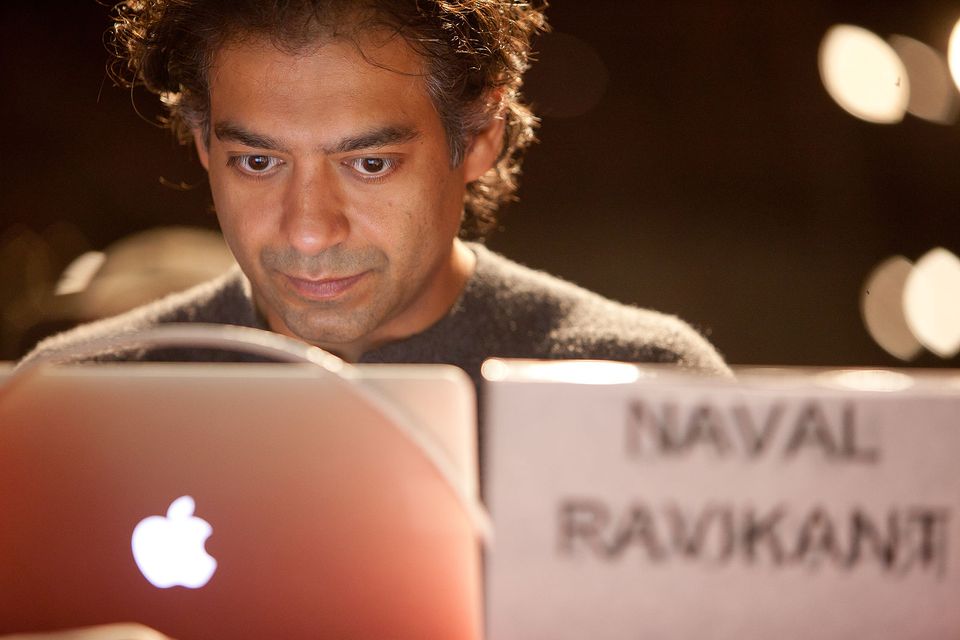How to Get Rich Without Getting Lucky (Naval's Best Advice)

I am a huge fan of Naval Ravikant, the investor and founder of AngelList (among other things). His ability to distil a complex world into short, pithy nuggets of wisdom is an art form.
I discovered Naval's work through his purposely clickbaity titled podcast, "How to get rich without getting lucky". So much of what he explained resonated deeply with me. Things I felt I intuitively knew but had never taken the time to articulate or distil into clear concepts, he presented in a way that made complete sense.
As I was listening, I felt the urge to write down as much of it as I could. Fortunately, the manuscript is available - it's a brilliant read in its own right, and is something I have bookmarked and returned to time and again. Not to mention, I've listened to the podcast countless times.
If you haven't read or listened to Naval's work, here's a great starting point:
- The "tweetstorm" that started it all
- The podcast (and manuscript) to expand on the tweetstorm
- The book 'The Almanack of Naval Ravikant' by Eric Jorgenson, that expands on Naval's ideas about wealth and happiness
Naval would be near the top of my list of people to follow - especially for those who want to explore the concepts of wealth and happiness.
The following are some of Naval's ideas about wealth that resonated with me:
Making money is a skill you learn
"Making money is not a thing you do—it’s a skill you learn." - Naval
As Naval makes clear, it's imperative to "seek wealth, not money or status".
In Naval's words:
"Wealth is the thing you want. Wealth is assets that earn while you sleep; it’s the factory of robots cranking out things. Wealth is the computer program running at night that’s serving other customers. My definition of wealth is oriented toward businesses and assets that can earn while you sleep. You want wealth because it buys you freedom."
"Money is how we transfer wealth. Money is social credits; it’s the ability to have credits and debits of other people’s time. If I do my job right and create value for society, society says, “Oh, thank you. We owe you something in the future for the work that you did. Here’s a little IOU. Let’s call that money.”
"Status is your rank in the social hierarchy. There are fundamentally two huge games in life that people play. One is the money game. Money is not going to solve all of your problems; but it’s going to solve all of your money problems. I think people know that. They realize that, so they want to make money."
It's incredibly easy to focus primarily on money and status. Often, it's what other people see, making it attractive for people to obtain. Wealth is a long game that requires leverage, patience, skill and judgement to obtain.
Understanding old leverage vs new leverage
“Fortunes require leverage. Business leverage comes from capital, people and products with no marginal costs of replication.” - Naval
So, what is leverage? In its simplest form, leverage is to use (something) to maximum advantage.
Naval breaks down leverage into two key domains: old leverage and new leverage.
Old leverage or Permissioned Leverage is a type of leverage that requires you to seek permission to obtain. Examples include:
- people; in the form of employees
- capital; in the form of money
Conversely, New Leverage or Permissionless Leverage is a type of leverage that does not require you to seek permission to obtain. Examples include:
- media; in the form of audio (podcast, audiobooks), writing (blogs, books), and video
- code
Typically, building a business will require all of these forms of leverage. However, Permissionless Leverage is where the real magic happens.
With products (like code and media), you have a near-zero marginal cost of replication. This means that you can write a book once, build an app, or create a video, and sell it hundreds, thousands, or millions of times through digital channels for a marginal increase in cost - and sometimes for no additional cost at all.
The internet has made all of this possible. Through social media, and other digital channels, the barrier to entry has been reduced to a smartphone. Writing this blog is an example of Permissionless Leverage; I write it once and it can be consumed countless times at no additional cost to me.
Don't rent your time
"You are not going to get rich renting out your time. You must own equity, a piece of the business to gain your financial freedom." - Naval
The standard narrative of working life goes something like this;
- Learn - go to school, qualify for university, qualify for a job
- Work - work harder (and more often, longer) to increase your pay by a small percentage each year
- Retire
This entire process involves deploying your time for skills and money. As Naval acknowledges, you have to rent your time to get started. However, you should only be doing so to learn skills, serve your apprenticeship, and save money to embark on starting a business.
However, if you want to get wealthy, Naval is crystal clear that moving away from renting your time in exchange for money is critical. When your inputs (time, energy) are tied to your outputs (money), there is a ceiling. You can only earn money linearly or synchronously. When you sleep, go on holiday, or retire - your earning stops.
The goal is to earn money non-linearly or asynchronously, where your inputs don't match your outputs. To earn money while you sleep.
Starting your own business, or having equity in a business, are ways to decouple your time from money.
You won't get wealthy renting your time. You may make money, but you won't generate lasting wealth. Wealth creation involves leverage, and renting your time is an inefficient form of leverage.
What you do is more important than how you do it
"One thing about business that people don’t realize: it takes just as much effort to create a small business as it does to create a large one." - Naval
Everyone on this planet has 24 hours in a day. Most people work incredibly hard to make a living.
Naval makes a point of highlighting that Elon Musk is renowned for his incredible work ethic and the countless hours he devotes to his many ventures. So too, the corner grocery store owner who rises early to stock shelves in time for customers and stays late cleaning up. Musk and the grocery store owner both work incredibly hard and as Naval suggests, perhaps the grocery store owner even more. The difference is what they're working on.
"If you take on accountability and solve problems on the edge of knowledge that others can’t solve, people will line up behind you. The leverage will come." - Naval
My dad calls this the vehicle. He would say to me that you can have the skills, luck, desire, and work ethic to succeed, but without the right vehicle, you might not achieve the level of success you had planned. The right vehicle is the what.
"You’ve got one life on this planet. Why not try to build something big?" - Naval
Find work that feels like play
"If you want to make money you have to get paid at scale. And why you... as opposed to somebody else getting paid, that’s specific knowledge." - Naval
In reference to Naval's Specific Knowlege (the things you are uniquely good at), he explains, "all of this stuff feels like play to me, but it looks like work to others."
To me, conceptualising a product, crafting a design, and writing code feels like play. It's a challenge that I thoroughly enjoy. To others, it certainly looks like work.
Naval espouses that Specific Knowledge is learned on the job, often through apprenticeships. As he puts it, "the best careers are the apprenticeship or self-taught careers because those are things society still has not figured out how to train and automate yet." As a result, "Specific Knowledge also tends to be technical and creative. It’s on the bleeding edge of technology, on the bleeding edge of art, on the bleeding edge of communication."
This makes those skills highly valuable and sought after, but difficult to replicate and train for.
So, how do you develop and hone Specific Knowledge? Naval's answer is simple; "I actually think the best way is just to follow your own obsession. And somewhere in the back of your mind, you can realize that, actually, this obsession I like and I’ll keep an eye out for the commercial aspects of it."
"Whatever you are a natural at, you want to double down on that." - Naval
In this blog, I've only just scratched the surface of his tweetstorm and subsequent podcast. Jump on over to his website for more: https://nav.al/rich
